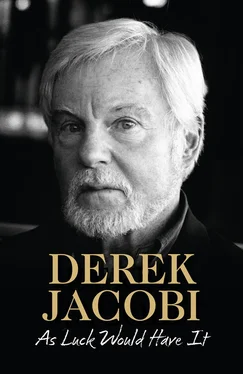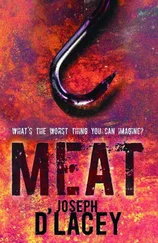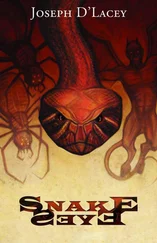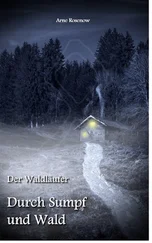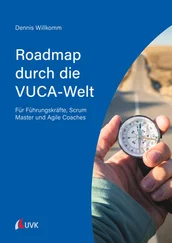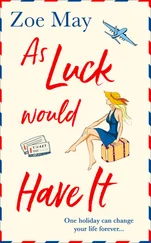And so it stayed like that for many years, until I was ten – and to begin with, and for life ever after, the first outlet of my romantic feelings and love was for Mum and Dad, whose whole focus was on me.

Being a happy child and belonging to a small, close-knit family as I did, my memories of childhood mostly centre around the other members of my family who lived locally. There was Grandpa and Grandma, Dad’s parents; Dad’s brother – Uncle Henry; his wife – Auntie Hilda; and their son Raymond. All five of them lived on two floors in Poplars Road, off Baker’s Arms, which was twenty minutes’ walk away in Leyton. Grandpa and Grandma lived upstairs, the others on the ground floor. Grandma Sarah was tiny. She and Grandpa Henry were very sweet, kind and gentle.
In the wider family circle my cousin Michael (son of my mother’s brother Alfred) and Vicky, his sister, lived just down the road, too. Alf Two was very close to Dad. Tall and gangling with dark hair, he was a builder and later built the lean-to or conservatory on the back of our house. He was Mum’s favourite brother, a joker who would have us in fits, but he liked to gamble, and on more than one occasion – as I found out later – got himself into ‘a spot of bovver’. One day after the war he suddenly took off with his wife and two children without telling a soul, and sailed for Australia. Mum was heartbroken. On discovering they had gone she came back from their house furious and upset.
We went round and found the house empty. They really had gone. I think this must have been another ‘spot of bother’ – he’d got himself into a state over money. Even before they left my parents had the feeling that there was something ‘not quite right’, and were suspicious about what was going on in Uncle Alf’s immediate family. Mum wasn’t too keen on the Beardmores, as the family her brother married into were called, and we were all a bit doubtful about them. I grew up wary of the Beardmores: not because they were unfriendly or uncommunicative, but because they were a little odd and eccentric.
There was a brother of my maternal grandmother – a great-uncle who was known as Gaga. He sat around in Hackney and did nothing, but on Dad’s side Grandpa had six brothers, one of whom was a well-known architect called Julius Jacobi who built some of the first skyscrapers in London, although we never knew him or the other Jacobis.

A remarkable feature of Aunt Hilda’s household was the one outside toilet to which I’d head to answer the call of nature. When I was ready I’d call out, ‘I’m ready, Aunt Hilda!’ – the call I made for Auntie to come and wipe my bottom. Grandpa, who was a cobbler and worked for Dolcis all his life, had a shed in the garden to ply his trade and mend our shoes; this was his holy of holies, where he kept all his cobbling tools – I treasure to this day a metal last as a doorstop.
Not only was there no toilet in the house, but also no bathroom. We took our immersions in a tin bath, filled it up with hot water once a week, with a fire blazing in the hearth to keep us warm. But did we feel deprived? Did we feel others had more than we did? Never – it never once crossed our minds.
Mum’s maiden name was Daisy Gertrude Masters. I knew nothing about her paternal background, but her grandmother had the unlikely name of Salomé Lapland, so heaven knows where she came from – most likely from the frozen north – and for all I knew the family could have been gypsies. She had some French relations somewhere, and there were two adored brothers. There were no actors or anyone remotely like artists in her family. She would later claim that my artistic temperament came from her side, for an aunt of hers played the piano!
Mum was pretty, she had a round face, while her hair had turned white when she was in her twenties. She was very conscious of her hair and would go to the hairdressers once a week in Leyton. Dad and I had an old-fashioned barber who lived next door and who would come in once a week to cut our hair. We would lay out newspapers in our front room to collect the cuttings.
I never remember what people look like, but I do remember their voices. The barber had a voice like my uncle Henry, which I learned later had been the result of diphtheria when he was young. It was adenoidal, strained, and he spoke very high, at the top of his throat. His throat had been burned away, or cauterised.
Both my parents were born in Hackney in the same year, 1910. Mum and Dad met first as teenagers, while very much later, in their forties, they both worked at Garnham’s department store in Walthamstow High Street, where Dad managed the crockery and hardware department and Mum was the boss’s secretary and a department supervisor.
‘It was the scout uniform,’ she would say. ‘To woo me your dad had a motorbike with a sidecar. He would come and collect me, and we would go out together.’
They had a modest wooing, with her on the pillion or sidecar. Sometimes my Auntie Hilda and Uncle Henry joined them.

War was declared in September 1939, a month before my first birthday. My memories go back to sitting in a pram when we first heard the air-raid sirens. Mum grabbed hold of me, swaddled and wrapped me up, then rushed me down the steps into the Anderson shelter.
I liked the wail of the sirens and never felt fear. Although we didn’t live in the area of dense, blanket bombing or the fire bombs that set the whole of Docklands on fire, there were explosions enough – flashes, sirens, wailing searchlights crossing the sky and picking out planes and barrage balloons. Somehow I was never affected. I was too young to feel or understand violent death and destruction as a presence.
Dozens of kids from where I lived were sent away in the early months of war with labels round their necks and a single change of clothing, accompanied by teachers, to board with strangers, but with no guarantee they could stay even with brothers and sisters, and not knowing when they would next see their fathers and mothers.
This never happened to me. I never stood on a station platform looking lost and forlorn with a label round my neck.
During the Blitz in 1940–41 I was still in Leytonstone. Dad, being over thirty, wasn’t called up for a while and, like millions of others, dug out and built an Anderson shelter in the back garden. It was purpose-made from sheets of corrugated iron bent into a semi-circular shape. Dad set it over a concrete base embedded two or three feet in the ground. It had no soak-away, but it had bunk beds on either side making four beds in total. Like others, Dad covered it with earth and a little rock garden: planting aubretia, roses, Canterbury bells and geraniums.
I’m not sure if this camouflage decoration put off the Boche from dropping bombs on us. During the raids we were hunched up with sopping feet in the Anderson, which every now and then shook and quaked in the depths from after-shock. I heard later that when I was three one huge bomb fell just hundreds of yards down our road at the junction of Essex Road with Crieg Road in front of the Leyton High School for Boys, gouging out a vast crater.
Grandpa and Grandma were mainly with us during the Blitz. Grandpa stood outside the shelter and stationed himself as if on guard. I can’t say what he thought he would be able to do if a bomb fell on us. I do remember later that if anyone farted in the shelter they were made to stand outside – expelled as a punishment. Perhaps this was what Grandpa kept doing!
Читать дальше
